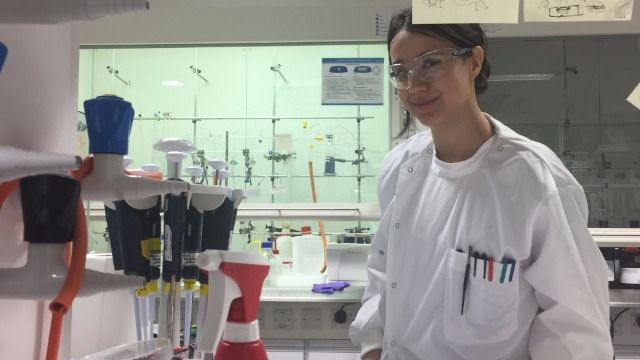Until now, all artificial retinal research has used only rigid, hard materials. The new research, by Vanessa Restrepo-Schild, a 24 year old Dphil student and researcher at the Oxford University, Department of Chemistry, is the first to successfully use biological, synthetic tissues, developed in a laboratory environment. The study could revolutionise the bionic implant industry and the development of new, less invasive technologies that more closely resemble human body tissues, helping to treat degenerative eye conditions such as retinitis pigmentosa.
Just as photography depends on camera pixels reacting to light, vision relies on the retina performing the same function. The retina sits at the back of the human eye, and contains protein cells that convert light into electrical signals that travel through the nervous system, triggering a response from the brain, ultimately building a picture of the scene being viewed.
Vanessa Restrepo-Schild led the team in the development of a new synthetic, double layered retina which closely mimics the natural human retinal process. The retina replica consists of soft water droplets (hydrogels) and biological cell membrane proteins. Designed like a camera, the cells act as pixels, detecting and reacting to light to create a grey scale image. The Colombian native said: “The synthetic material can generate electrical signals, which stimulate the neurons at the back of our eye just like the original retina.”
